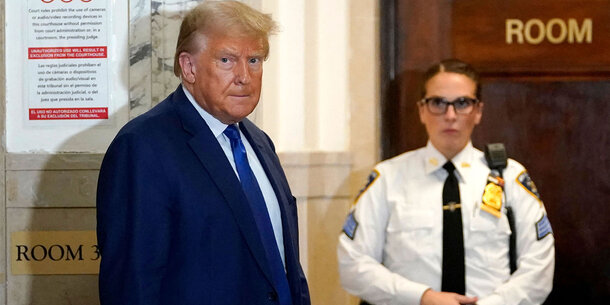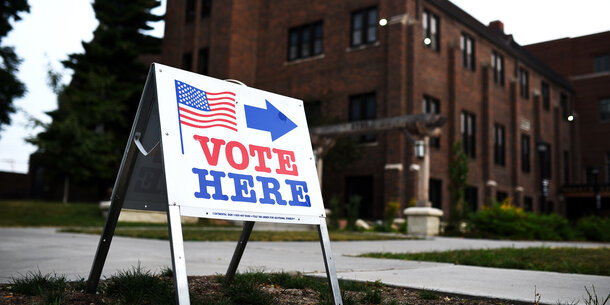The National Voter Registration Act of 1993 (NVRA) requires states to “inform applicants … of … voter eligibility requirements.” The law also requires federal and state mail-in voter registration forms to specify “each eligibility requirement.” Florida’s uniform statewide voter registration application fails to comply with these statutory mandates because it does not provide any guidance for would-be voters with past convictions.
In November 2018, Florida voters approved Amendment 4, a state constitutional amendment that automatically restored voting rights to most people with past felony convictions who had completed the terms of their sentence, including probation and parole. Individuals convicted of murder or felony sex offenses did not have their rights restored by Amendment 4. Still, an estimated 1.4 million Floridians were expected to benefit from the amendment’s approval. In 2019, the legislature enacted a law that invalidated the eligibility of more than 774,000 Floridians who owe court-imposed debts that they cannot afford to pay.
As a result, the eligibility requirements that must be met before returning citizens can register to vote depend on their offense, terms of sentence, and court of conviction. However, Florida’s uniform statewide voter registration application simply provides “[i]f you have been convicted of a felony … you cannot register until your right to vote has been restored.” It also requires applicants to affirm “that [they are] not [] convicted felon[s], or if [they are], [their] right to vote has been restored.”
The consequences of Florida’s failure to include any specific eligibility requirements related to felony convictions on its voter registration application have been dire.
Since July of last year, dozens of Floridians with past convictions have been criminally charged with falsely submitting false voter registration information, including for falsely affirming that their voting rights have been restored. However, most, if not all, of those individuals likely did not know that they were ineligible – nor could they have known given the lack of information on the state’s voter registration application.
On January 13, the League of Women Voters of Florida, Florida State Conference of the NAACP, Brennan Center, NAACP Legal Defense Fund, ACLU of Florida, and ACLU sent a letter to Secretary of State Cord Byrd, putting him on notice that Florida’s voter registration application violates the NVRA because it fails to adequately inform applicants with felony convictions of the eligibility requirements.
Florida had 90 days to bring its voter registration application into compliance with the NVRA, but it did not. So on April 26, 2023, the League of Women Voters of Florida and the Florida NAACP filed a lawsuit in the U.S. District Court for the Northern District of Florida against Secretary Byrd, challenging Florida’s uniform statewide voter registration application under the NVRA.
Plaintiffs alleged Florida’s uniform statewide voter registration application violates the NVRA for at least three reasons. First, it does not inform applicants convicted of murder or a felony sex offense in Florida that they are not eligible to vote unless they received clemency. Second, it does not inform applicants convicted of any other felony in Florida that they are not eligible to vote unless they are not on parole, probation, or any other form of community control and they do not owe any fines, fees, court costs, or restitution that was ordered by a court at the time of their felony sentence. And third, it does not inform applicants convicted of a felony in another state that their eligibility to vote in Florida depends on whether they would be eligible to vote in the state where they were convicted. Plaintiffs further alleged that the lack of information on Florida’s voter registration application impedes their voter registration activities.
On May 18, Secretary Byrd filed a motion to dismiss plaintiffs’ complaint. The district court held argument on his motion on June 20. The district court granted Secretary Byrd’s motion on July 10 and dismissed plaintiffs’ claim.
Plaintiffs were represented by the Brennan Center, ACLU, ACLU of Florida, NAACP Legal Defense Fund, and O’Melveny & Myers.
Documents
- Complaint (April 26, 2023)
- Defendant’s Motion to Dismiss (May 18, 2023)
- Plaintiffs’ Opposition to Defendant’s Motion to Dismiss (June 1, 2023)
- Order Granting Defendant’s Motion to Dismiss (July 10, 2023)
Related Blogs and Reports
- We’re Suing Florida to Help Clear Up Voting Confusion for People with Past Convictions
- 10 Reasons Courts Should Toss Florida’s Flimsy ‘Voter Fraud’ Prosecutions
- Voting Rights Restoration Efforts in Florida
- Erika L. Wood, Florida: An Outlier in Denying Voting Rights (December 16, 2016)
Related Cases
- Gruver v. Barton (consolidated with Jones v. DeSantis)




